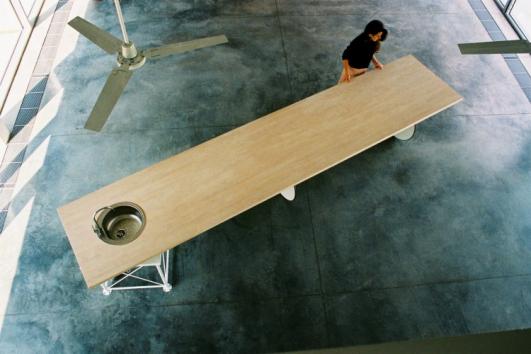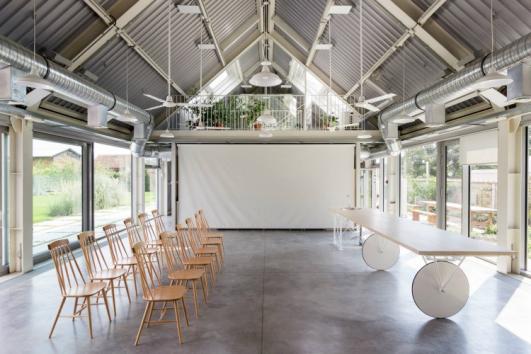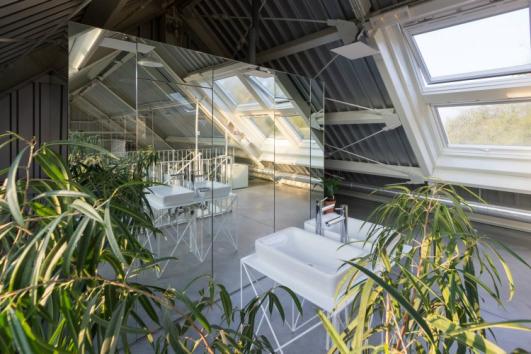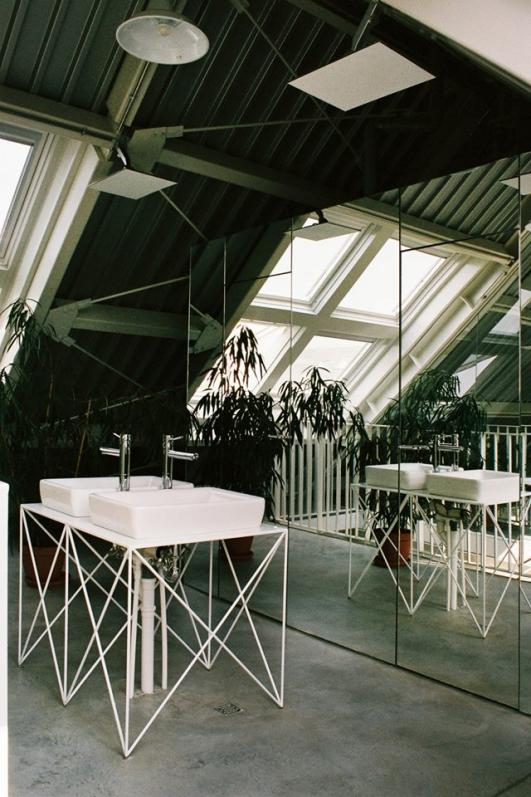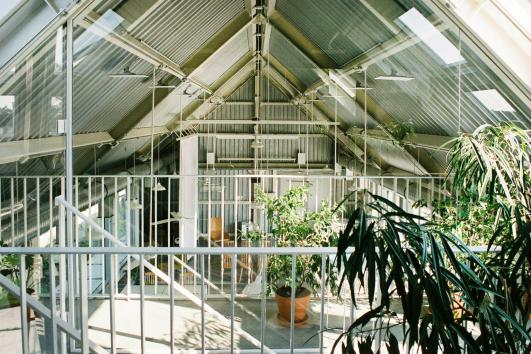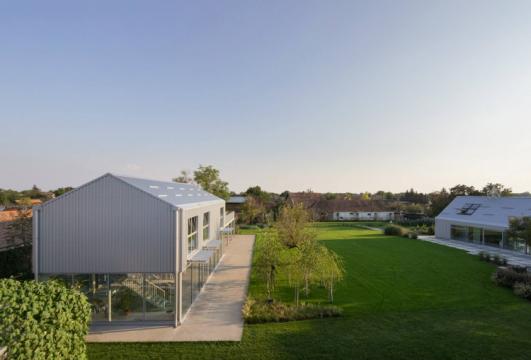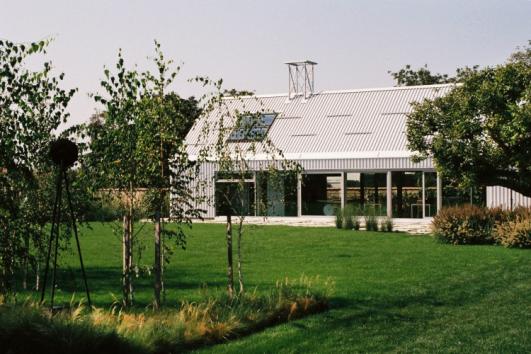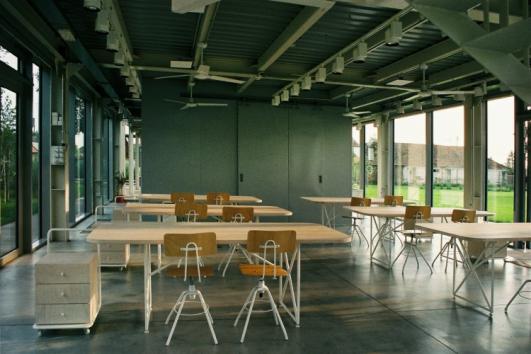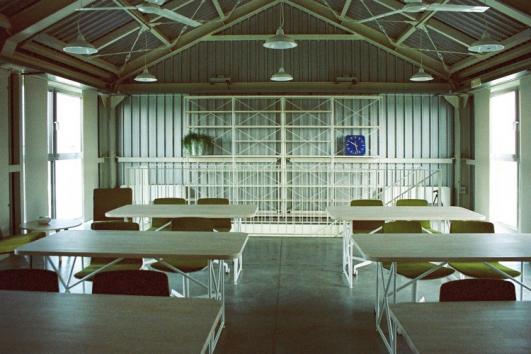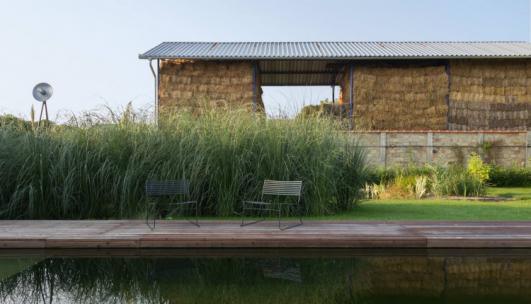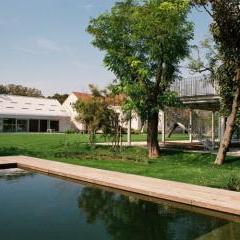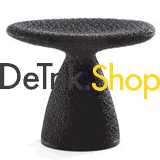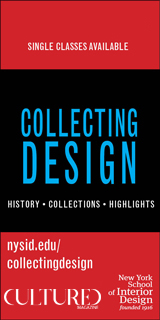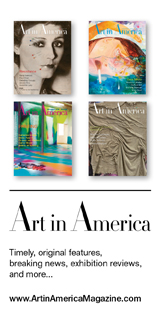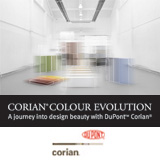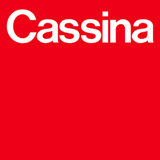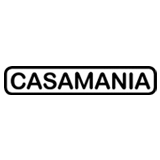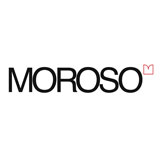'Terra Panonica' Cultural Tourist Estate in Serbia
cultural projects, design, education, agriculture and social development
House C and House D are a part of the “Terra Panonica” estate, located in Mokrin, a settlement in the municipality of Kikinda, in Vojvodina region, in Serbia. “Terra Panonica” estate is a cultural and tourist complex for various creative and leisure activities. With its program it focuses on cultural projects, design, education, agriculture and social development.
The complex was built on the site of the former rural estate; therefore the disposition volume and shape of the new buildings have been determined after the original houses, while their functional relations adhere to the structural logic of the local rural households.
In form, structure and material the houses invoke associations with the utility sheds of the contemporary local households which are essentially just parts of the courtyard covered by a steal canopy. In that sense, the interior of both houses is designed to give an impression of such a canopy rather than an enclosed interior space. This feature is further accentuated by the same materialization of the shell in the interior and on the façade.
House C represents an experience point – a meeting place for all – the artists residing and creating on the estate, as well as for leisure visitors and those on vacation. It is conceived as an entirely open multifunctional space for the most diverse events. Mobile interior partitions, rotating work station and large openings on the façade – connecting the interior with an outdoor plateau and the vegetable garden garden, make the House C very adaptable for various activities.
House D is a universal workshop designed for different types of creative work. It is a contemporary craft workshop for artists, designers, developers and researchers, conceived as an integrated two-level flowing open space. Ground floor is designed as an integrated space for manual work with such materials as ceramics, wood and metal, while the upper floor is intended for computer work, conferences and meetings. Both an integral part of the building and its outdoor extension is the light steel structure on columns with a separate staircase – which forms a terrace and represents an exterior work space on ground floor and the upper floor, so that the capacity of the workshop is significantly expanded during summer period. The geometry of the House D is derived from the corn shed that was once located in its place, as well as the prefabricated utility structure of a neighboring household in its immediate environment. The building is materialized in stark simplified form, “rased on its feet,” and lifted off the ground, with the idea that it only overhangs the part of the estate.

